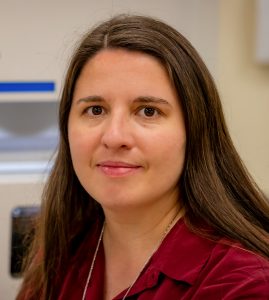CERC Research Seminar – April 2021
CERC Seminar
Understanding Coupled Transport and Reaction Processes in Fuel Cells Using Advanced Diagnostic Techniques
April 26, 2021 @ 11:00 AM
Abstract
around the world. However, these power sources are intermittent and reliable management of renewable resources on the power grid requires a combination of flexible demand and energy storage. As an example, California had more than 27.4 GW of electricity generated by solar energy in 2019, generating nearly 20 % of the state’s electricity. However, the state observed “duck-curve” of net energy demand at any day, due to renewable energy being overproduced and curtailed during daytime and need of high ramp rate for baseload to meet the demand in the evening, when solar energy is scarce. Furthermore, recent power-grid blackouts, heatwaves and fires immensely stressed the grid, specifically in its transmission sector, necessitating solutions that are not easy to provide. Hydrogen can act as a long duration energy storage medium to address the grid intermittency and to relax the transmission demand. Having hydrogen introduced into natural gas pipelines, even at only 5 % can help offset seasonal fluctuations and also improve grid resiliency.
Low temperature fuel cells, such as polymer electrolyte fuel cells (PEFCs) or alkaline membrane fuel cells (AMFCs) are promising energy-conversion technologies for transportation and grid-storage sectors. Currently, cost and durability are two major issues that these technologies must overcome to be cost-competitive with non-renewable energy technologies. In addition, heat and water management set restrictions on the overall fuel cell stack design, as heat removal during the operation and liquid water management during start-up and shut down are critical transport processes that the fuel cell stack designers have to optimize. At higher operating temperatures, large thermal gradients in the system promote water removal in a vapor phase. To achieve maximum water permeation and consequently higher current densities, it is necessary to understand an interplay between pressure- and capillarydriven liquid water transport and phase-change induced (PCI) flow due to evaporation/condensation in porous gas-diffusion layers (GDLs). These highly porous materials have effective conductivity depend on the liquid water content adding complexity to heat and mass transport. Here, synchrotron nano- and micro- X-ray computed tomography is used to characterize fuel cell materials under insitu and operando conditions. I will discuss various experimental procedures for synchrotron imaging to further fundamental understanding of structure-property phenomena in the fuel cells multi-scale materials and provide a roadmap for the design of nextgeneration materials. To complement the experimental effort, modeling studies will be presented, as well.

Biography
Dr. Zenyuk holds a B.S. (2008) in mechanical engineering from the New York University Tandon School Engineering. She continued her studies at Carnegie Mellon University, where she earned M.S. (2011) and Ph.D. (2013) in mechanical engineering. Her graduate work focused on fundamental understanding of electric double layers in electrochemical energy-conversion systems. After a postdoctoral fellowship at Lawrence Berkeley National Laboratory in Electrochemical Technologies Group, Zenyuk joined the faculty of the Mechanical Engineering Department at Tufts University in 2015. In July 2018 she joined Department of Chemical and Biomolecular Engineering at University of California, Irvine, where she is also an Associate Director of the National Fuel Cell Research Center. At UC Irvine, Zenyuk’s group works on enabling energy solutions by researching low-temperature hydrogen fuel-cells, Li-metal batteries and electrolyzers. Zenyuk works on design strategy encompassing novel materials, diagnostic tools and device-level testing. She is a recipient of the NSF CAREER award (2017), Interpore society Fraunhofer Award for Young Researchers (2017), Research Corporation for Science Advancement, Scialog Fellow in Advanced Energy Storage (2017-2019), Electrochemical Society (ECS) Toyota Young Investigator Award (2018), UCI Samueli School of Engineering Early Career Faculty Excellence in Research Award (2019) and ECS Energy Technology Division Srinivasan Young Investigator Award (2021). Prof. Zenyuk published over 50 journal publications and delivered more than 50 invited presentations on topics of energy conversion and storage.
ZOOM Meeting ID: 625 2088 7022 Passcode: 2360